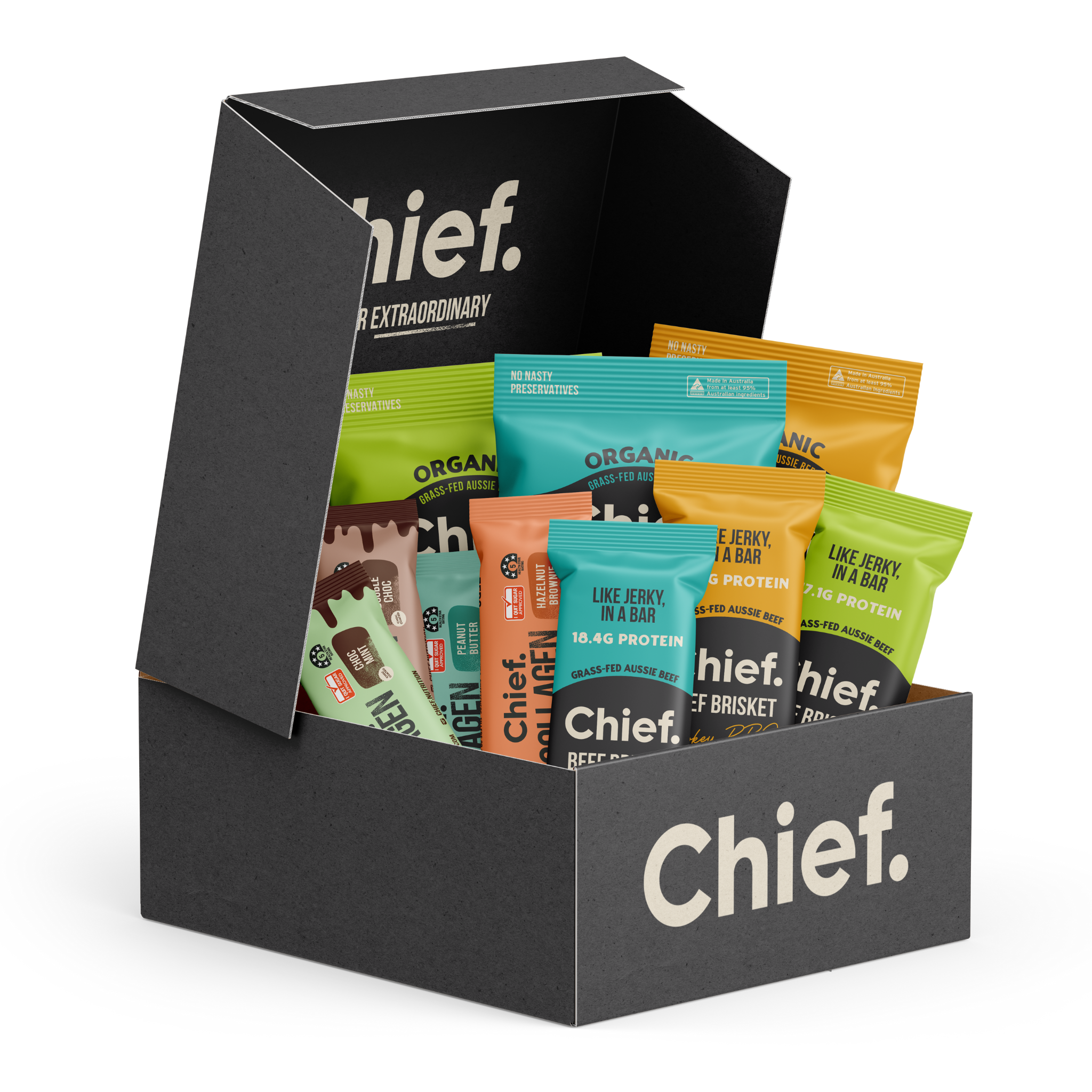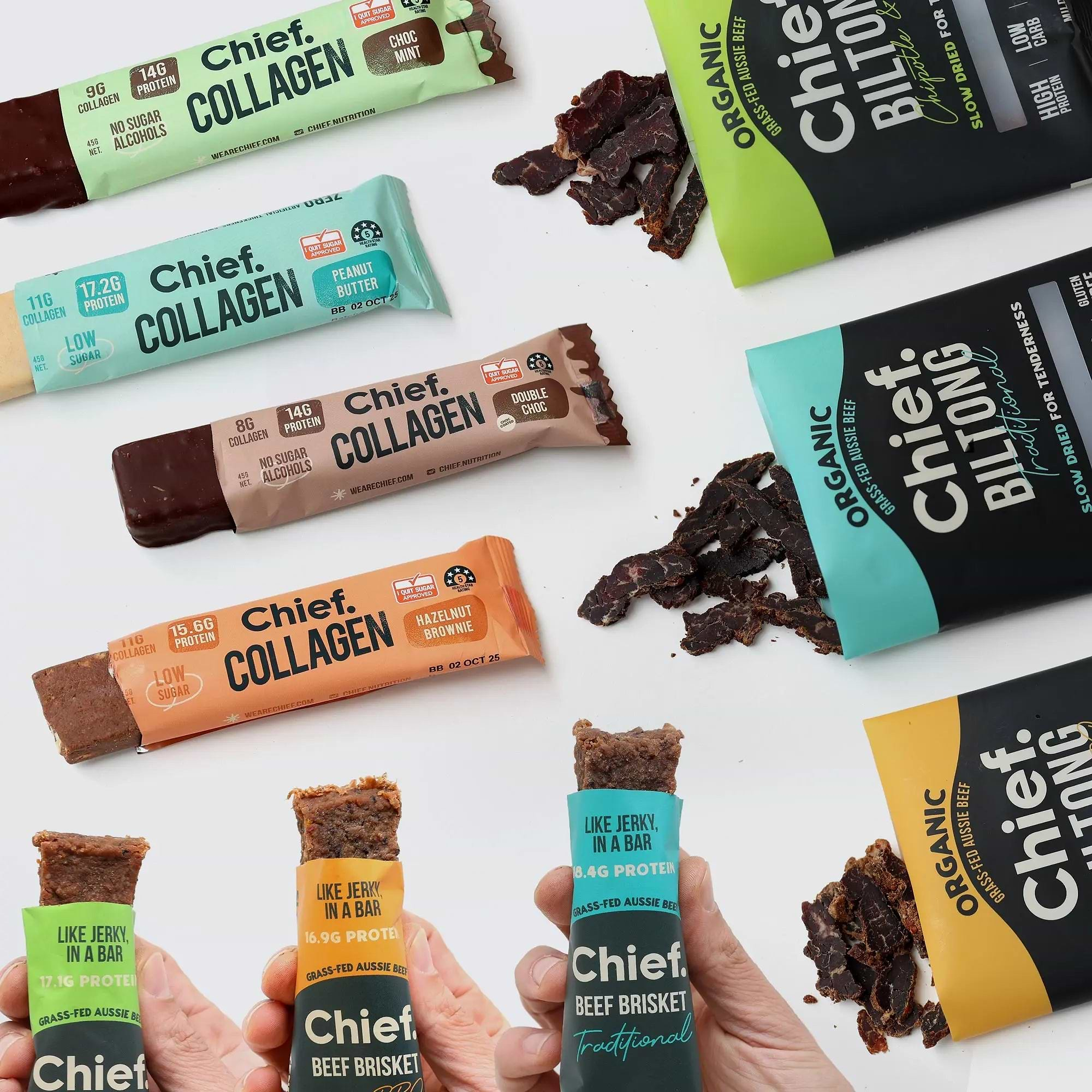Filter by product
Organic Biltong
30g or 90g
From $66.95

What's biltong?
Biltong is a traditional South African savoury snack that's similar to beef jerky. It's made by air-drying seasoned meat, typically beef. Unlike beef jerky, which is often dehydrated or smoked, biltong is not cooked but rather cured and dried over several days which preserves most nutrients. Biltong is relatively new to the snacking scene, despite African communities making it to preserve meat in a hot climate without refrigeration for hundreds of years. While biltong is usually made from beef, various types of game are also used. Our next favourite after beef, is lamb biltong.
What's the difference between Biltong and Jerky
Jerky is usually cooked (~70°C) or smoked for several hours, whereas biltong is soaked in a salt-and-vinegar brine before being hung to slowly air-dry over a number of days. Drying is better for the nutrient profile of the beef because more heat sensitive vitamins, like Vitamin B12, are retained. Traditionally, biltong is made with a simple combination of salt, vinegar, and spices. Jerky, on the other hand, does not contain vinegar and is more likely to contain secondary ingredients like sugar, soy sauce, and Worcestershire sauce.
How do the cuts of meat differ?
Jerky is almost always made from very lean cuts of beef, whereas biltong may be made from either lean or fatty cuts. Biltong is usually cut into wide, thick strips that are easier to hang, whereas jerky is typically thinly sliced (although we thinly slice our biltong as that's how we like it, it's more pleasant to eat). While jerky has a more consistent moisture content and texture because it relies on lean cuts of meat, biltong has more diverse textures because various cuts may be used. Some types may be very moist and fatty, with others dry and crumbly.
Is Biltong good for you?
Yes! Biltong is good for the whole family including kids. It's a great source of protein and essential vitamins and minerals while being low in carbs. It’s particularly rich in iron. Chief Biltong is made from grass-fed and grass-finished regeneratively farmed organic beef. We avoid all the nasty stuff normally found in dried and cured meats.
Is Biltong better than Jerky?
We love jerky, but finding jerky that's low in sugar and without nasty preservatives is tough. Speaking of tough, most jerky is also as tough as an old boot.
Biltong is more tender and easy to eat. We avoid any sugary marinades to keep the sugar content very low, and we avoid all the usual nasty preservatives usually found in dried and cured meats.
How to store Biltong? How long does Biltong last?
Even though we avoid nasty preservatives, Chief Biltong will last up to 12 months on the shelf thanks to our oxygen free packaging. While we recommend storing below 25°C (77°F), it's not particularly heat sensitive and will be fine in your glovebox or your bag in high temperatures.









































